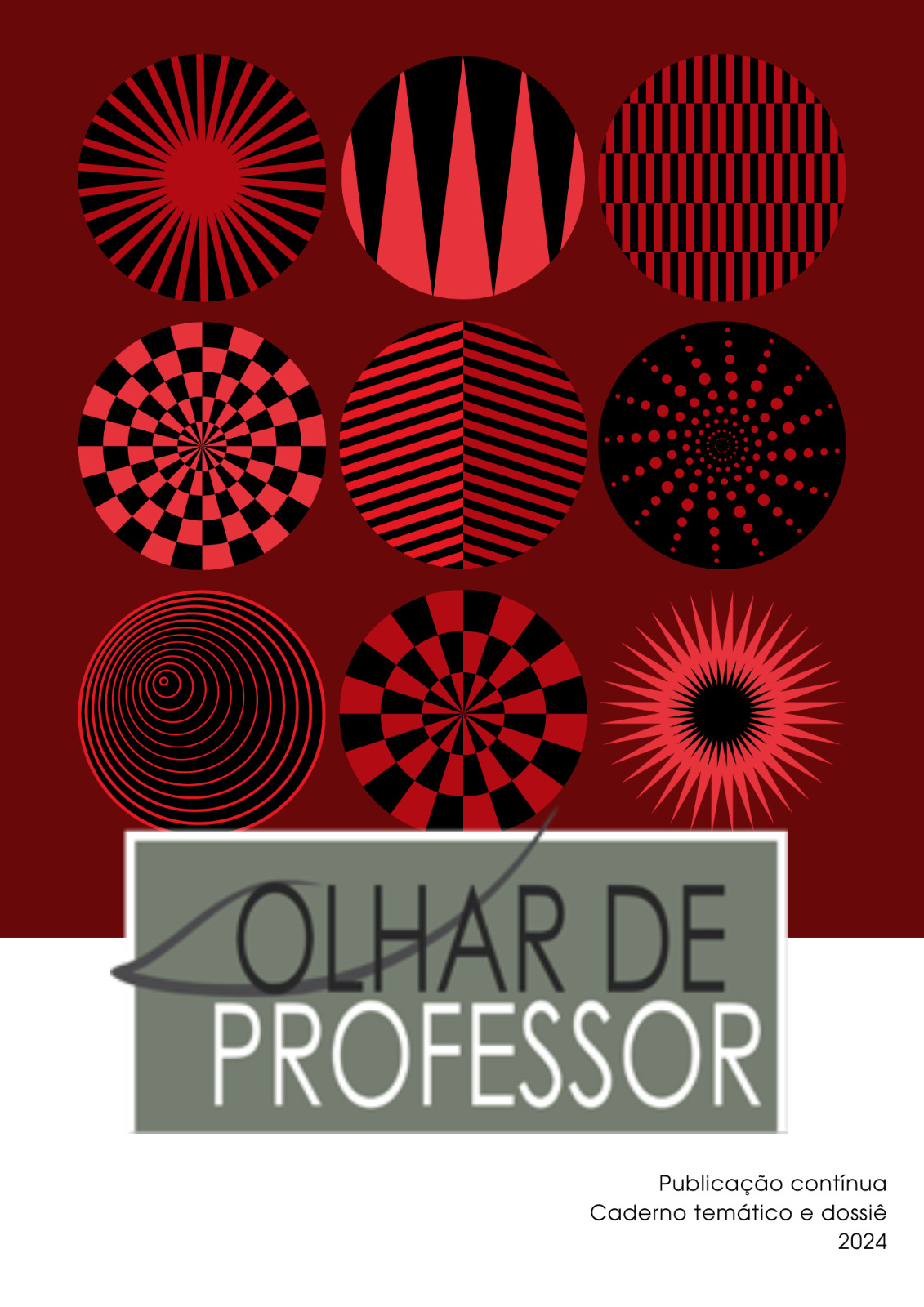Storytime: a study in primary education
Main Article Content
Abstract
The present study was carried out in a primary education class and focused on Storytime. The objectives of the study were to understand the teachers' views on Storytime, expand the children's literary repertoire and analyse children's reactions to Storytime. The methodology chosen was an approach to action research, valuing the teacher's reflective capacity on their own pedagogical practice. Participant observation allowed data collection, as well as semi-structured interviews with teachers and children's voices. The results of this investigation show, in relation to teachers, that they do not have knowledge about the organization and dynamization of Storytime; in relation to children, the results show that Storytime boosted their interest in stories, leading to a greater demand for books and reading in the classroom.
Downloads
Article Details

This work is licensed under a Creative Commons Attribution 4.0 International License.
Authors who publish in this journal agree with the following terms:
a) Authors keep the copyrights and concede the right of its first publication to the magazine. The work piece must be simultaneously licensed on the Creative Commons Attribution License which allows the paper sharing, and preserves both the author identity and the right of first publication to this magazine.
b) Authors are authorized to assume additional contracts separately, to not-exclusively distribution of the paper version published in this magazine (e.g.: publish in institutional repository or as a book chapter), with the author identity recognition and its first publication in this magazine.
c) Authors are permitted and stimulated to publish and distribute their papers online (e.g.: in institutional repository or on their personal webpage), considering it can generate productive alterations, as well as increase the impact and the quotations of the published paper.
d) This journal provides public access to all its content, as this allows a greater visibility and reach of published articles and reviews. For more information on this approach, visit the Public Knowledge Project, a project that developed this system to improve the academic and public quality of the research, distributing OJS as well as other software to support the publication system of public access to academic sources.
e) The names and e-mail addresses on this site will be used exclusively for the purposes of the journal and are not available for other purposes.

This work is licensed under a Creative Commons Attribution 4.0 International License.
References
APRENDIZAGENS ESSENCIAIS. 2.º ANO. 1.º CICLO DO ENSINO BÁSICO. PORTUGUÊS, 2018. Disponível em: https://www.dge.mec.pt/sites/default/files/Curriculo/Aprendizagens_Essenciais/1_ciclo/portugues_1c_2a_ff.pdf. Acesso em: 27 mar. 2024.
BALÇA, A. Educação literária na escola. Antares, Caxias do Sul, v. 15, n. 36, p. 1-21, 2023. Disponível em: http://www.ucs.br/etc/revistas/index.php/antares/article/view/11259. Acesso em: 28 mar. 2024.
BALÇA, A.; AZEVEDO, F. Educação literária em Portugal: os documentos oficiais, a voz e as práticas dos docentes. Revista Linhas, Florianópolis, v. 18, n. 37, p. 131-153, 2017. Disponível em: https://www.revistas.udesc.br/index.php/linhas/article/view/1984723818372017131. Acesso em: 27 mar. 2024.
CASTRO, R. V.; SOUSA, M. L. Hábitos e atitudes de leitura dos estudantes portugueses. In: CASTRO, R. V.; SOUSA, M. L. (org.). Entre linhas paralelas. Estudos sobre o português nas escolas. Coimbra: Angelus Novus, 1998, p. 129-147
COLOMER, T. Entrevista a Teresa Colomer sobre Educación Literaria por Cláudio Mello. Via Atlântica, São Paulo, v. 16, n. 2, p. 313-326, 2015. Disponível em: https://www.revistas.usp.br/viaatlantica/article/view/100870. Acesso em: 19 mar. 2024.
CONDE, E.,; MENDINHOS, I.; CORREIA, P. Aprender com a biblioteca escolar (2.ª ed.). Lisboa: RBE, 2017.
DIONNE, A. M. Le plaisir de lire avec son enfant: un enjeu déterminant pour une pratique de littératie familiale aux multiples facettes. forumlecture.ch, n. 3, 1-11, 2013. Disponível em: https://www.forumlecture.ch/myUploadData/files/2013_3_Dionne.pdf. Acesso em: 19 mar. 2024.
FONTINHA, A. Entrevista de António Fontinha a Luís Correia Carmelo, s. d. Disponível em: https://lugar.memoriamedia.net/index.php/antonio-fontinha. Acesso em: 21 mar. 2024.
GONÇALVES, F. Ação educativo-pedagógica com os livros no grupo de bebês: potência e encantamento na educação infantil. Poiésis, Palhoça, v. 15, n. 27, p. 112-129, 2021. DOI: https://doi.org/ 10.59306/poisis.v15e272021112-129
JUNÇA, M. Educação literária e contadores de histórias: um testemunho na primeira pessoa. In: AZEVEDO, F.; BALÇA, A. (org.). Leitura e Educação Literária. Lisboa: Pactor, 2016, p. 113-120.
LINHARELHOS, D. Relatório da prática de ensino supervisionada do mestrado em Educação Pré-Escolar e Ensino do 1º Ciclo do Ensino Básico - A hora do conto...No tempo em que os animais falavam. 2019. Relatório de Estágio (Mestrado em Educação Pré-Escolar e Ensino do 1.º Ciclo do Ensino Básico) – Universidade de Évora, Évora, 2019. Disponível em: http://hdl.handle.net/10174/26421. Acesso em: 11 mar. 2024.
MÁXIMO-ESTEVES, L. Visão Panorâmica da Investigação-Acção. Porto: Porto Editora, 2008.
MELO, S.; COSTA, P. Contributos para uma análise crítica do discurso oficial sobre educação literária. Educação em Análise, Londrina, v. 3, n. 2, 96-119, 2018. DOI: https://doi.org/10.5433/1984-7939.2018v3n2p96
PAIVA, A. S. Entrevista de Ana Sofia Paiva a Luís Correia Carmelo, s. d. Disponível em: https://lugar.memoriamedia.net/index.php/ana-sofia-paiva. Acesso em: 15 mar. 2024.
PNL - PLANO NACIONAL DE LEITURA. Orientações para Actividades de Leitura. Programa - Está na Hora da Leitura 1.º Ciclo. Lisboa: Ministério da Educação. s.d.
PONTE, J. P. Investigar a nossa própria prática. In: GRUPO DE TRABALHO DE INVESTIGAÇÃO (Orgs). Reflectir e investigar sobre a prática profissional. Lisboa: Associação dos Professores de Matemática, 2002, p. 5-28.
ROSÁRIO, C. O lugar da leitura de livros nas práticas culturais dos estudantes do ensino secundário e o papel das bibliotecas escolares. Uma pesquisa extensiva no distrito de Portalegre. 2018. Tese de Doutoramento (Doutoramento em Ciências da Educação) - Universidade de Évora, Évora, 2018. Disponível em: https://www.rdpc.uevora.pt/handle/10174/24486. Acesso em: 27 mar. 2024.
SALUTTO, N. “Pode deixar rasgar?” Relação e subjetividade no cotidiano com bebês e livros na creche. Educação Unisinos, São Leopoldo, v. 24, p. 1-19, 2020. DOI: https://doi.org/10.4013/edu.2020.241.18598
TAQUELIM, C. Animação à leitura: contributos para o desenho de uma sessão, 2009. Disponível em: http://magnetesrvk.no-ip.org/casadaleitura/portalbeta/bo/abz_indices/001823_Animacao%20a%20Leitura.pdf. Acesso em: 14 mar. 2024.
VELOSO, R. M. Curtir Literatura Infantil no Jardim de Infância, 2007. Disponível em: http://www.casadaleitura.org/portalbeta/bo/documentos/ot_li_jardinf_rveloso_a.pdf. Acesso em: 12 mar. 2024.
YUBERO, S.; LARRAÑAGA, E.; PIRES, N. Estudo sobre os hábitos de leitura dos estudantes portugueses do ensino superior. Castelo Branco: Instituto Politécnico de Castelo Branco, 2014.





